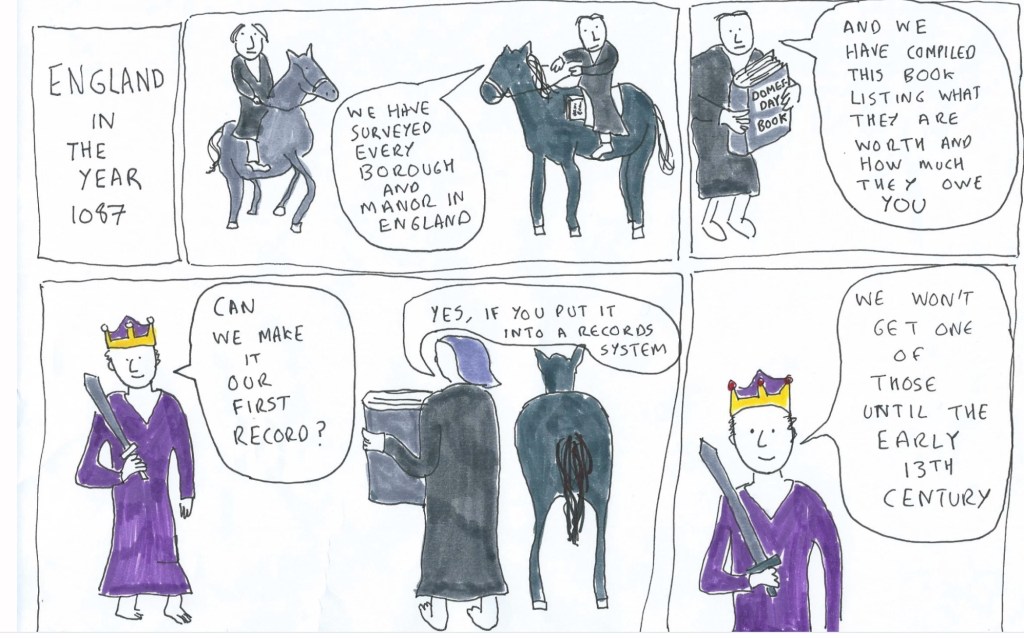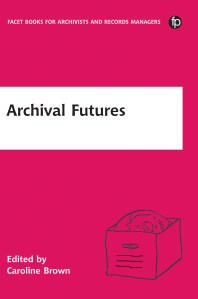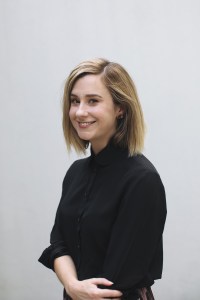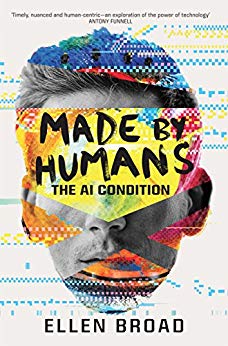Provoked and intrigued by the recent discussion spurred by James Lappin’s article (cited below), the Recordkeeping Roundtable crew have been inspired to create a virtual panel discussion, featuring James, Chris Hurley, Andrew Waugh and Nicola Forbes.
We’d love you to come along – its free!!
What: Recordkeeping theory, models & strategies and today’s workplace
When: Thursday 18th March, 6-7pm (AEST)
Registration: Go to registration page on Eventbrite – registering should provide you with an email linking to the zoom invitation.
How well are the recordkeeping theories, models, strategies coping in the workplace dominated by technological determinism of the Microsoft behemoth? Come and hear a distinguished panel consisting of scholars, theorists and practitioners consider this issue in the light of James Lappin’s recent article on the subject.
Our panel
James Lappin blogs at https://thinkingrecords.co.uk/ and recently wrote the thought provoking article ‘Rival records management models in an era of partial automation’ in Archival Science available free at https://link.springer.com/article/10.1007/s10502-020-09354-9
Chris Hurley is an internationally recognised recordkeeping continuum theorist and is widely known for thought provoking musings which challenge the status quo. His writings and musings are to be found at https://www.descriptionguy.com/
Andrew Waugh works at Public Record Office of Victoria and is widely known for his involvement in managing electronic records through the VEO models. His provocation ‘Email: a bellwether records system’ is particularly relevant to this discussion, available here https://rkroundtable.org/2014/06/30/email-a-bellwether-records-system/
Nicola Forbes is the Director Information Governance for the Fair Work Ombudsman. She has worked for a number of NSW government agencies and has had oversight of complex programs utilising multiple technologies and grappling with the practicalities of recordkeeping in the workplace. She blogs at https://anxietyinformation.data.blog/


 Longtime friend of the Recordkeeping Roundtable Adrian Cunningham worked for 36 years in collecting archives, government archives and in university settings and research projects. During that time his work traversed almost all functional areas of archival endeavour, with his latter-day focus being on digital recordkeeping and digital archiving. He has published widely and now operates as an independent consultant and is a member of ISO TC46/SC11 Committee on Records Management and Archives and as a member of the International Council on Archives Experts Group on Archival Description.
Longtime friend of the Recordkeeping Roundtable Adrian Cunningham worked for 36 years in collecting archives, government archives and in university settings and research projects. During that time his work traversed almost all functional areas of archival endeavour, with his latter-day focus being on digital recordkeeping and digital archiving. He has published widely and now operates as an independent consultant and is a member of ISO TC46/SC11 Committee on Records Management and Archives and as a member of the International Council on Archives Experts Group on Archival Description. In part 2 of our chat with Ellen Broad, we talks about privacy and changing attitudes to data about – and of – ourselves. Ellen’s book, Made by Humans: The AI Condition is
In part 2 of our chat with Ellen Broad, we talks about privacy and changing attitudes to data about – and of – ourselves. Ellen’s book, Made by Humans: The AI Condition is  In this latest episode of Recordkeeping Roundcasts, we talk to Ellen Broad, author of Made by Humans: The AI Condition, about the way that rapidly advancing technologies like artificial intelligence and machine learning are being deployed in business, government and society, and the wide ranging implications of their adoption. Ellen and the Roundtable’s Cassie Findlay discuss on real world results flowing from machine decision making, accountability for the use of these systems, the role of recordkeeping and archives, and changing perceptions of privacy in the data economy.
In this latest episode of Recordkeeping Roundcasts, we talk to Ellen Broad, author of Made by Humans: The AI Condition, about the way that rapidly advancing technologies like artificial intelligence and machine learning are being deployed in business, government and society, and the wide ranging implications of their adoption. Ellen and the Roundtable’s Cassie Findlay discuss on real world results flowing from machine decision making, accountability for the use of these systems, the role of recordkeeping and archives, and changing perceptions of privacy in the data economy.
 In this first episode the Recordkeeping Roundtable’s Cassie Findlay is talking with John Sheridan, Digital Director at The National Archives UK, about the challenges of scale and complexity that come with digital recordkeeping. As background for this conversation, take a look at
In this first episode the Recordkeeping Roundtable’s Cassie Findlay is talking with John Sheridan, Digital Director at The National Archives UK, about the challenges of scale and complexity that come with digital recordkeeping. As background for this conversation, take a look at